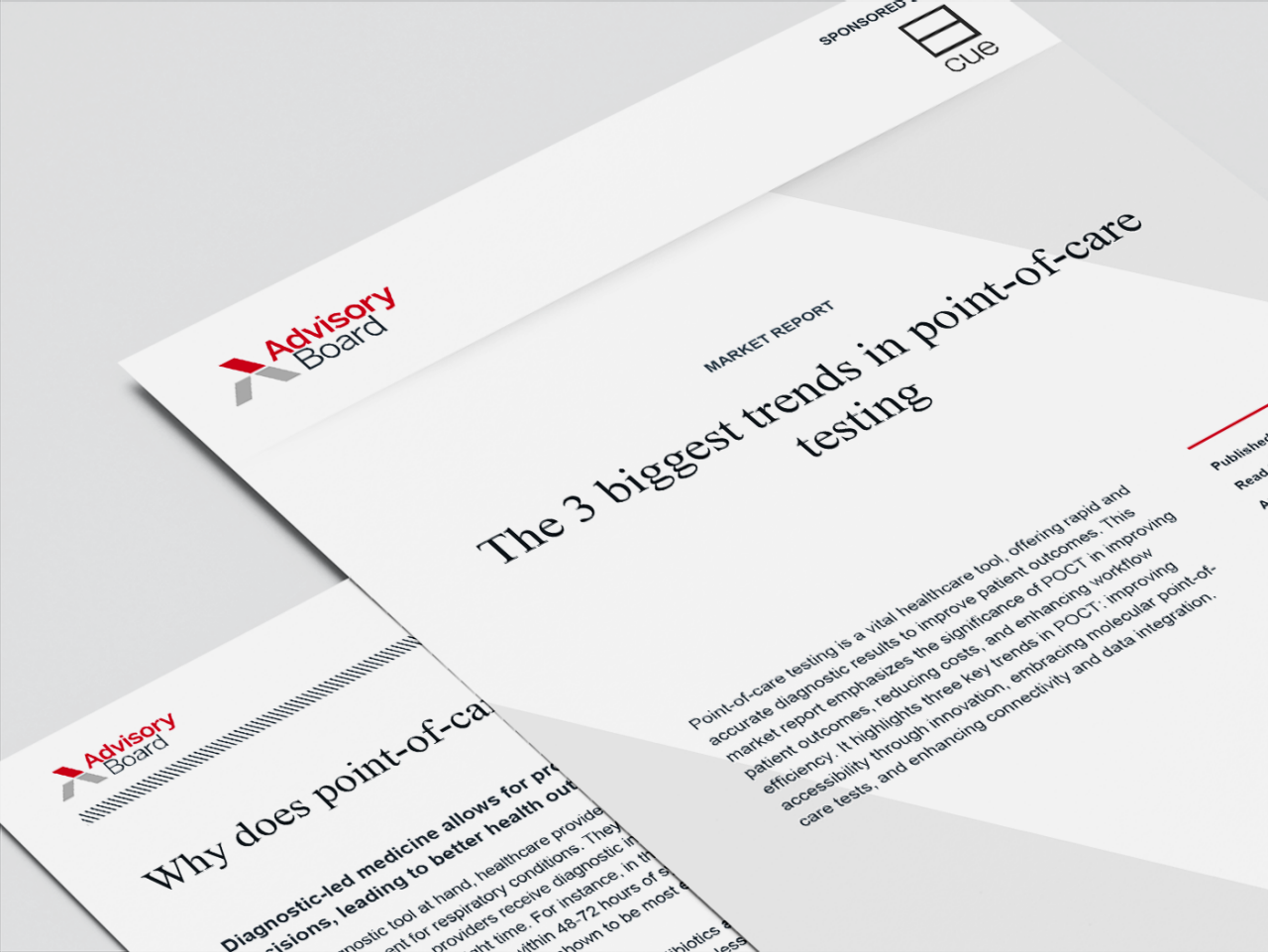Auto logout in seconds.
Continue LogoutOn Monday, a federal judge struck down FDA's plan to regulate lab-developed tests (LDTs) as medical devices, ruling that the agency did not have the authority to regulate such products. Advisory Board's Rachael Peroutky details what this could mean for the future of LDT regulation.
Background
According to STAT, FDA and Congress have tried to regulate LDTs for years without much success.
In 2022, lawmakers were close to passing a bill called the VALID Act that would allow FDA to regulate LDTs through a more flexible, less costly framework, but it was ultimately rejected by Republicans. Although the bill was later re-introduced by the House of Representatives in 2023, it did not see much progress.
In September 2023, FDA proposed a new plan to regulate LDTs as medical devices. Later, in April 2024, the agency issued a final rule regulating LDTs, with some exceptions. The initial phase of the rule was set to commence in May.
"The agency cannot stand by while Americans continue to rely on results from these tests without assurance that they work," said then-FDA Commissioner Robert Califf.
Although patient advocates supported FDA's efforts to regulate LDTs, several industry groups pushed back on the rule, arguing that it would limit patient access and put them out of business. The American Hospital Association also expressed concerns about the rule, saying that it could lead to patients losing access to "many critical tests and stifle innovative advances" in hospital and health system laboratory medicine.
Soon after the final rule was issued in 2024, the American Clinical Laboratory Association (ACLA), HealthTrackRx, and the Association for Molecular Pathology (AMP) filed a lawsuit against FDA. The organizations argued FDA did not have the authority to regulate LDTs and that the final rule was "inappropriate and ill-suited."
Judge strikes down FDA rule on LDTs
On Monday, Judge Sean Jordan from the U.S. District Court for the Eastern District of Texas ruled against FDA in the lawsuit from ACLA, HealthTrackRx, and AMP.
According to Jordan, the existing Clinical Laboratory Improvement Amendments (CLIA), which have long regulated LDTs, were already sufficient oversight. He also noted that the "text, structure, and history" of CLIA, as well as the Federal Food, Drug, and Cosmetic Act made it clear "FDA lacks the authority" to regulate LDT services.
In his ruling, Jordan vacated the case "in its entirety" and remanded the matter to HHS Secretary Robert F. Kennedy Jr. for further consideration.
"AMP is extremely pleased with the court’s clear and decisive ruling in our favor, and we hope this will finally end the FDA's attempts to exert an unwarranted overreach of authority of LDTs," said AMP president Jane Gibson.
Similarly, ACLA president Susan Van Meter said that the ruling "ensures that clinical laboratories can continue to focus on their primary mission—offering innovative and reliable diagnostics that save and improve the lives of millions of patients every day."
"This is a victory that protects patient access to critically needed testing services and removes burdensome regulations that would have undermined the clinical laboratory system in this country," Van Meter added.
According to STAT, the ruling could have implications for FDA's broader authority to regulate medical devices. HHS has not yet indicated how it will respond to the ruling, but the federal government may choose to the appeal the case to the U.S. Court of Appeals for the Fifth Circuit.
"While rulemaking may not have been the preferred path for all, the intention is to improve transparency in test performance," said Jeff Allen, CEO of the patient group Friends of Cancer Research. "If FDA chooses not to appeal, it underscores the need for congressional action to establish a consistent and reliable framework to ensure diagnostic test accuracy."
(Lawrence, STAT+ [subscription required], 4/29/24; Law, Medical Device Network, 4/1; Lawrence, STAT+ [subscription required], 3/31; AHA News, 4/1; Hale, Fierce Biotech, 4/1; Kelly, MedTech Dive, 4/1; Nordin et al., Cureus, 3/30/24)
What's next for lab-developed tests?
By Rachael Peroutky, Research Consultant, Pharmacy and Diagnostics research
The LDT rule received its fair share of pushback from industry. While the legal challenge here focuses primarily on FDA's regulatory authority, the debate over the need for more LDT regulation remains. Payers and providers are still looking for ways to ensure the validity and reliability of these tests, and question whether they should implement internal strategies to provide this assurance, or if they should look to Congress or FDA to improve LDT safety and transparency.
It's unclear whether the proposed regulation, or new regulations following in its footsteps, would actually address the root causes behind the majority of errors related to LDTs. According to the FDA's analysis behind the struck rule, labs' compliance costs are justifiable to improve safety. However, FDA may be overestimating the benefits of additional regulation.
The LDT rule will likely improve tracking and transparency of test effectiveness and adverse events. However, 60-70% of lab errors are preanalytical, caused by improper ordering or sample collection. It's unlikely these types of errors will be prevented by any new regulations.
If and when more regulations are implemented — whether from FDA or Congress — further LDT regulation would increase costs for labs and health systems, potentially limiting innovation, increasing consolidation, and decreasing patient access to critical tests. The industry needs to continue grappling with the best way to move forward.
Don't miss out on the latest Advisory Board insights
Create your free account to access 1 resource, including the latest research and webinars.
Want access without creating an account?
You have 1 free members-only resource remaining this month.
1 free members-only resources remaining
1 free members-only resources remaining
You've reached your limit of free insights
Become a member to access all of Advisory Board's resources, events, and experts
Never miss out on the latest innovative health care content tailored to you.
Benefits include:
You've reached your limit of free insights
Become a member to access all of Advisory Board's resources, events, and experts
Never miss out on the latest innovative health care content tailored to you.
Benefits include:
This content is available through your Curated Research partnership with Advisory Board. Click on ‘view this resource’ to read the full piece
Email ask@advisory.com to learn more
Click on ‘Become a Member’ to learn about the benefits of a Full-Access partnership with Advisory Board
Never miss out on the latest innovative health care content tailored to you.
Benefits Include:
This is for members only. Learn more.
Click on ‘Become a Member’ to learn about the benefits of a Full-Access partnership with Advisory Board
Never miss out on the latest innovative health care content tailored to you.




